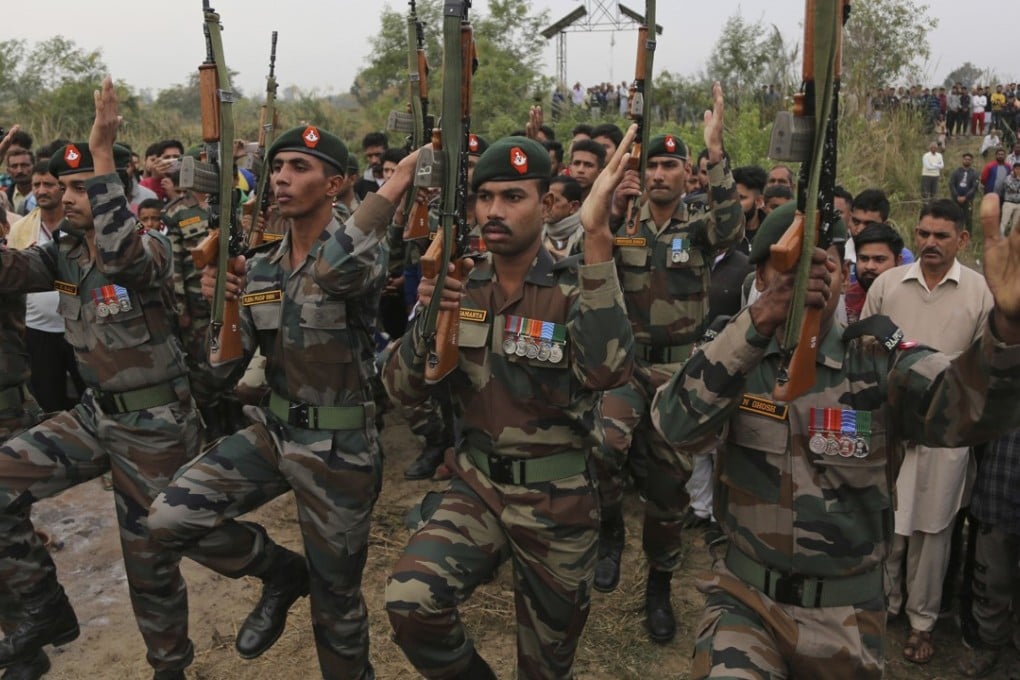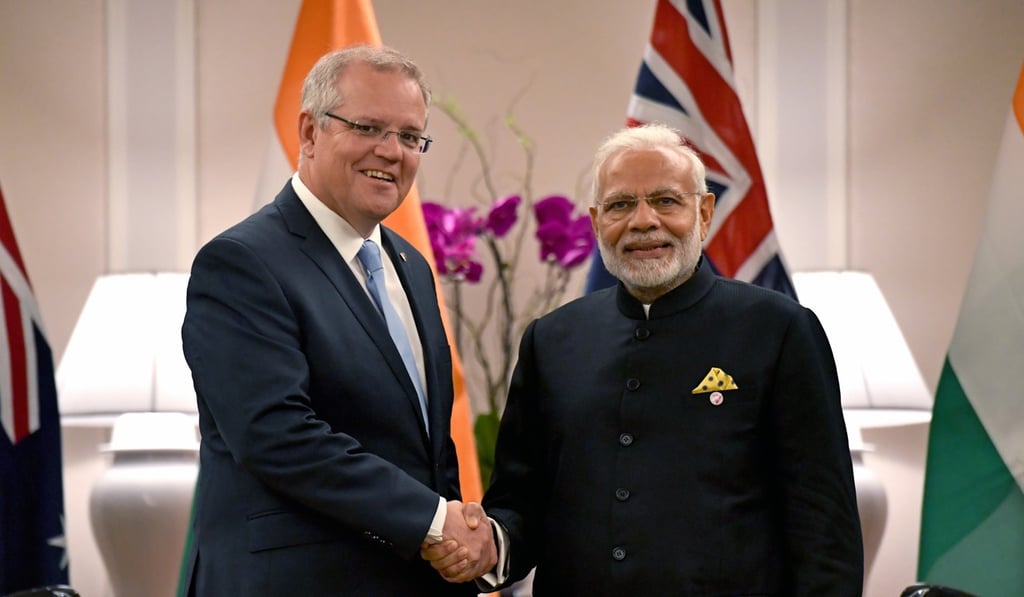Billed as a counter to a rising China, the Quad has yet to find a purpose
- The members individually pledged support for an ‘open’ and ‘rules-based’ region but the group has not been formalised at the ministerial level
- New Delhi is hesitant to adopt a unified and tough line on Beijing, which has mocked the group as being transitory ‘sea foam’

When senior officials from the United States, India, Japan and Australia recently held a rare four-way dialogue in Singapore, the meeting did not produce a single joint statement. Instead, it resulted in four – one for each country.
The outcome reflected the ambiguities surrounding the loose grouping that has been both hailed and scorned as a potential counterweight to China’s growing clout in the Asia-Pacific.
“When Japanese Prime Minister Shinzo Abe initiated the Quadrilateral Security Dialogue, or the “Quad”, in 2007, he envisaged a grouping capable of checking Beijing’s rising influence in the region. The group – which Abe would in 2012 liken to a ”democratic security diamond” – held just one round of dialogue and joint military drills that year before entering a decade-long hiatus when Australia withdrew to forge closer relations with Beijing.”
Its most recent gathering, held on the sidelines of the Asean summits earlier this month, was the first since its revival last year, and its fourth since its inception. The members in Singapore individually pledged support for an “open” and “rules-based” region but the group has not been formalised at the ministerial level and the timing of its next meeting is unclear.
This time around, India is the acknowledged outlier among the four participants despite lending its name to the group’s favoured nomenclature, the Indo-Pacific. New Delhi is hesitant to adopt a unified and tough line on Beijing, which vigorously protested the Quad in its first incarnation and more recently mocked it as transitory “sea foam”.
“India is seen hedging its bets: trying to come closer to the US without antagonising China, with which it has a long-standing border dispute,” said Vinay Kaura, an assistant professor at Sardar Patel University of Police, Security and Criminal Justice in Jodhpur.
“India seems reluctant to move forward in the direction of militarising the Quad, which is what the US wants in association with Japan and Australia.”
